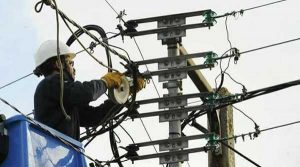Electrification of Africa: Honors and Call For Action
SMIN Power Group CEO Dr. Sandrine Mubenga is honored to have been interviewed for an article about the need for electrification in Africa by ALGERIE-ECO
The electrification of Africa is a huge challenge but also a market that attracts large groups as well as small businesses that offer “off-grid” solutions across a house or village. “In sub-Saharan Africa, 2 out of 3 people do not have access to electricity. It’s close to 600 million people, says Fatih Birol, executive director of the International Energy Agency (IEA). “It’s a top priority.”
With population growth, the challenge is huge for decades to come. Especially as parts of the continent – West Africa, rural areas – are lagging far behind. “Development, the reduction of poverty, inevitably go down the road of the availability of electricity,” said Jean-Claude Houssou, Minister of Energy of Benin, who was attending an IEA workshop devoted to Africa in Paris this week. This former executive of EDF in France wants to double in five years the rate of access to electricity in the Beninese countryside, still very low (7 to 8%). “It’s the security that gets better because the light comes … It’s also the children who can have light to learn. But also rural clinics that can store vaccines or drugs, “he told AFP. A reality that Ngalula Sandrine Mubenga knows well. “I almost died because there was no electricity in the place where I lived in Congo, in the small town of Kikwit. For three days I was between life and death simply because there was no electricity to do the operation, “she says. Today a professor of electrical engineering in the United States, she founded the company SMIN Power Group, which installs small solar systems, particularly in DR Congo. One of many companies that flourished in this niche. If electrification can go through the extension of the conventional network, this solution meets technical and financial limits in rural areas. The latter thus benefit more and more from “off-grid” (or “off-grid”) solutions, which can range from an autonomous mini-system to the scale of a village (with a small thermal generation, hydraulic or often solar) to a small individual solar kit coupled to a battery to power a home. They can thus replace diesel generators or even candles and oil lamps still frequently used for lack of better.
In the city, these solutions can also complement the conventional power supply to compensate for power outages, which can be frequent. “A conventional power grid can coexist with micro-grids and mini-grids,” says Ngalula Sandrine Mubenga. “These off-grid solutions are still more expensive (to use) than a connected solution, but when you’re in a rural area, the cost of building electricity transmission infrastructure is huge,” says Laurent Morel of PwC . “There is room for a market,” he says. This market has seen burgeoning start-ups like the British Bboxx or Baobab, founded by a Frenchman, who offer solar kits with prepaid electricity which allows small-scale daily payments for poor rural households.
(Writing AE, 2019)
Writing AE, “In Africa, the huge challenge of electrification with or without a grid” Published by ALGERIE-ECO April 19, 2019 and retrieved online April 23 from https://www.algerie-eco.com/2019/04/19/afrique-defi-enorme-de-lelectrification-sans-reseau/ Visit the website to read more:

 Previous Post
Previous Post Next Post
Next Post